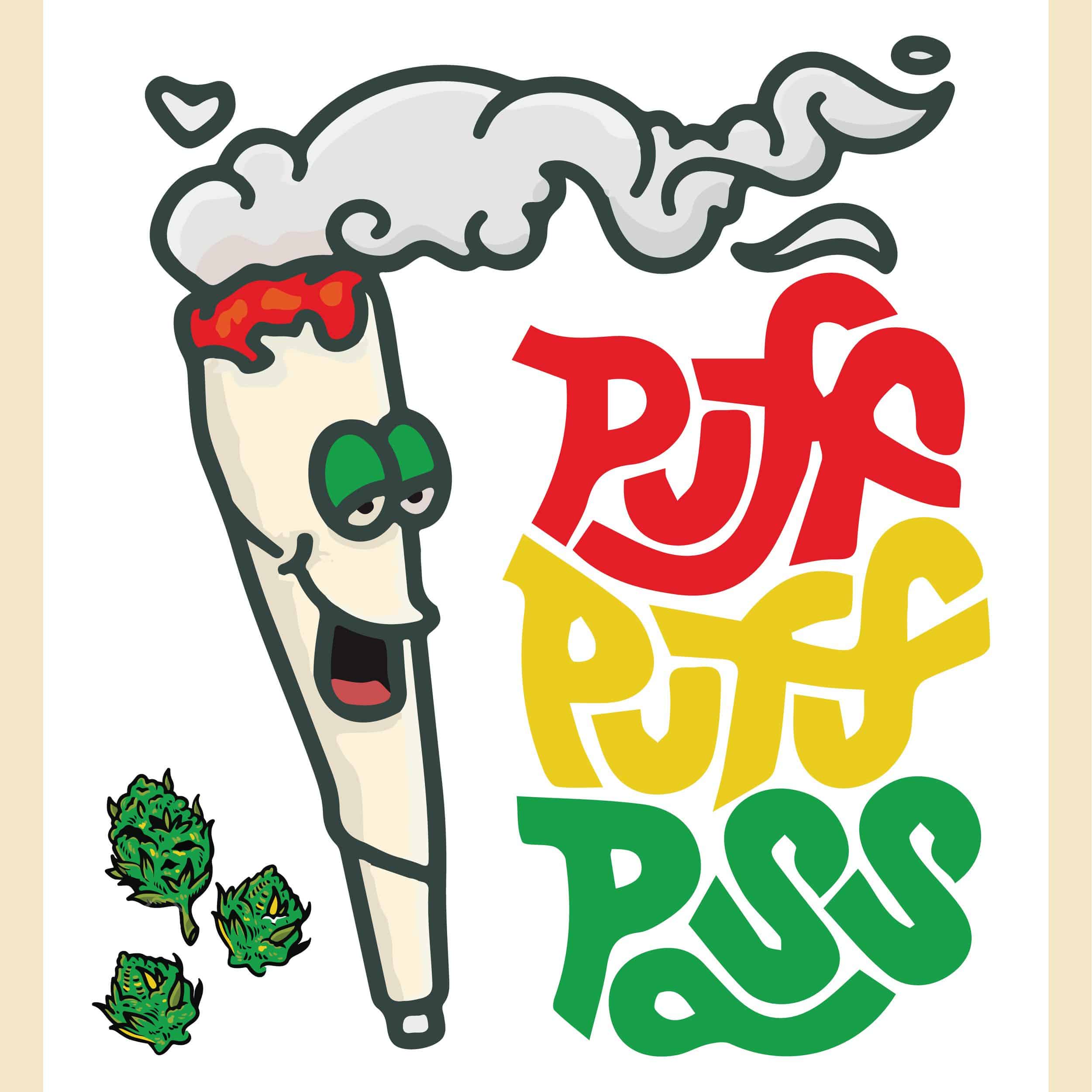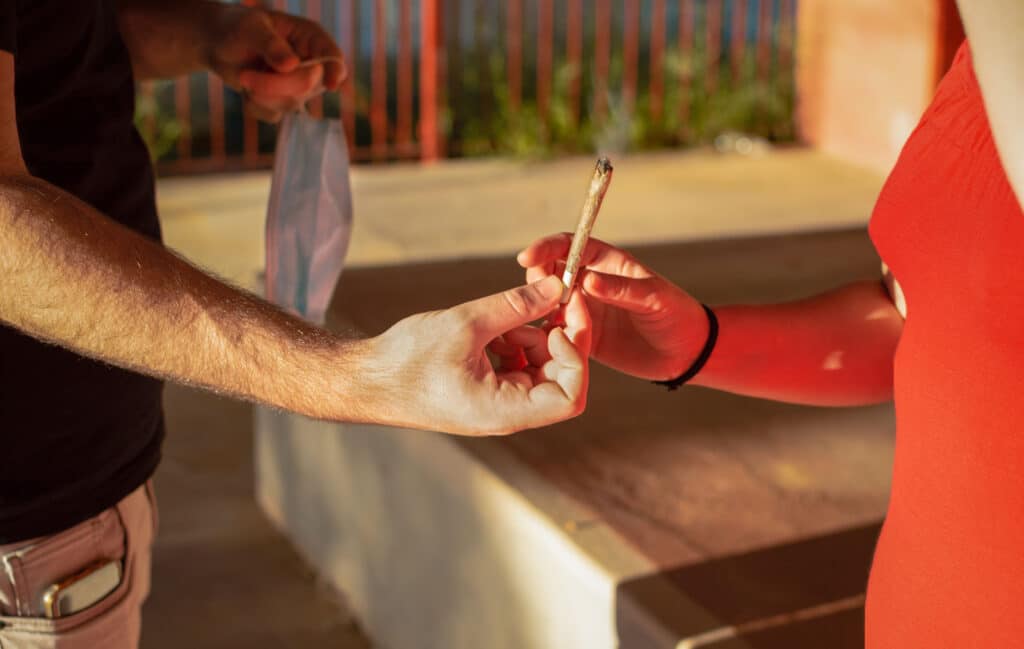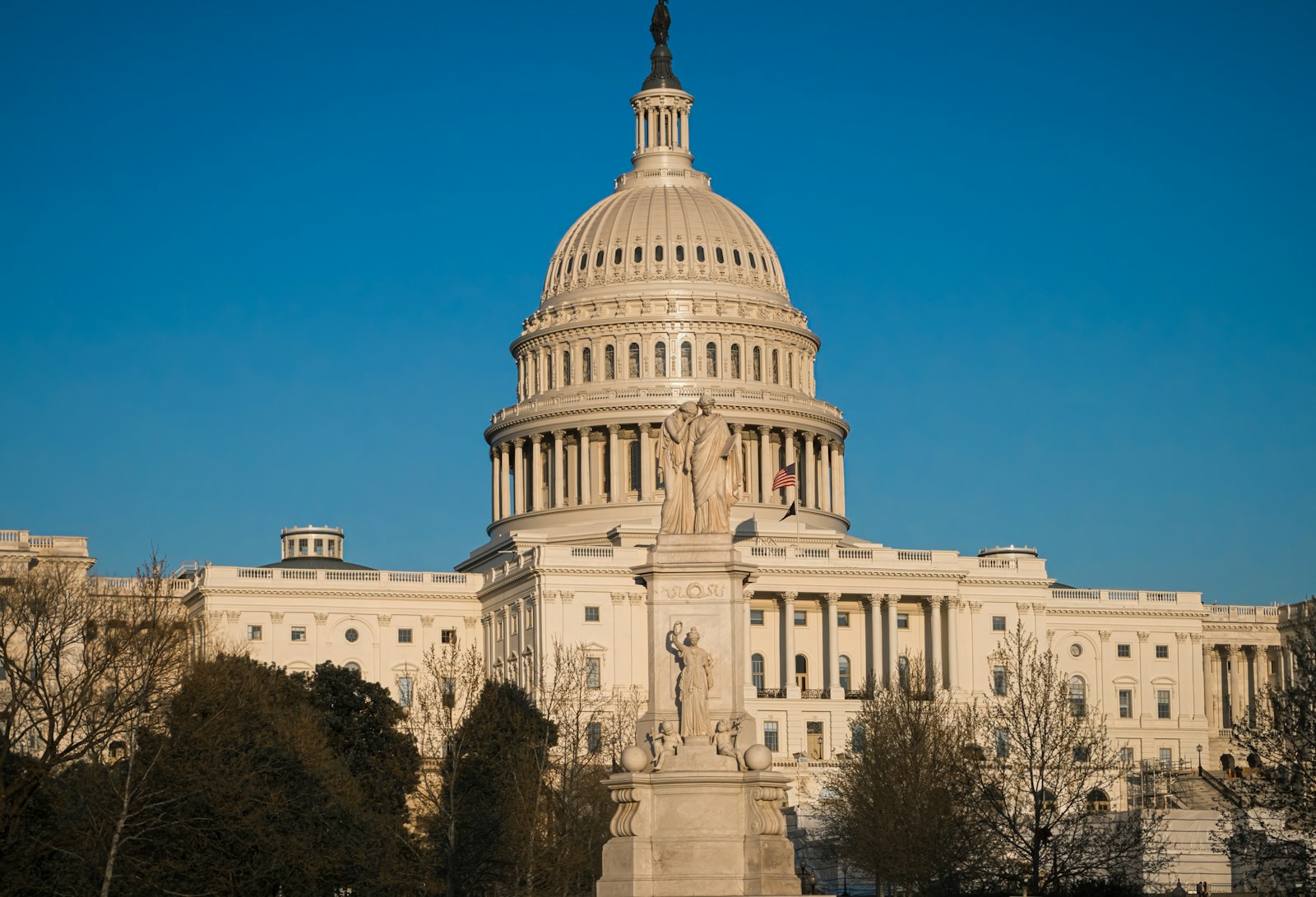Cannabis
Puff, Puff Pass, And the Art of Social Smoking
Published
9 months agoon
By
admin
Some of us smoke socially, some of us prefer to toke up in the privacy of our own space. Either way, there’s etiquette involved. When it comes to social smoking, there is the widely-known standard of puff, puff, pass. This exists with other conventions of social smoking; and is a consistent part of smoking culture, today.
Puff, puff, pass meaning
Vapes and edibles are catching on in a big way in the last few years, but there’s something about the good old joint; which maintains through generational, and industrial change. It’s nice to stand with a group of friends, or fellow-smokers, and share a story or a laugh, while passing a joint around. Is there really any specific rule for doing this? Of course, not!
However, despite a lack of formal literature on joint smoking etiquette; the convention of puff, puff pass, has embedded itself into social smoking society. And in the end, its really mainly a matter of having respect. Sure, everyone wants to make sure they get their own buzz-on, but its important to think about the group.
The term ‘puff, puff, pass’ is nothing more than a format. Each member of the smoking circle gets to hit the joint two times, before passing. The pass is generally to the left, but this is less important than making sure everyone gets a fair shot at the joint. There is nothing about how long a toke can be, so a person is free to hit the joint as hard as they want, when its their turn.

This tradition continues on as a word of mouth ritual. With no rules to govern it, or official cap on the number of tokes allowed in a turn; it shows one interesting thing. That people search for some kind of order and fairness, even when no one is making them. Somehow we always gravitate back to this model, in most any social smoking scenario.
There’s no rule saying that in a social environment, a person must share their weed. But I’ve found through life that if you show up to a party with weed, and choose to smoke it in a corner without sharing; you might get the evil eye from those around. It is understandable that many won’t want to share their well-earned stash; but its also good to remember, that sharing yours now, means getting included in someone else’s share, later.
Puff, puff, pass history
According to Emily Earlenbaugh of Cannabisnow, the phrase puff, puff, pass proceeded another popular word from 1960’s and 70’s US smoking culture. Back then, if you hogged the joint at your term, someone was sure to shout out ‘don’t ‘bogart’ the joint!’ The word ‘bogart’ is a slang term used beyond the world of weed, to indicate a person is keeping something for themselves, and not sharing with others.
That term actually does come from famous actor Humphrey Bogart, who was known to have a cigarette stuck into the side of his mouth, but with no apparent drawing on it. He wasn’t actually keeping anything from anyone; but the idea of holding onto something endlessly, stuck in its application with social smoking. It’s also applied to shared cigarettes. While this term was much more popular many decades ago, its still heard often enough today, if something holds onto the joint too long.
Earlenbaugh, however, gave no further uncovered information about where the term actually originated. Unlike a lot of modern terminology that is easily traced back to the statement of a person, or an event; this is a little bit harder. Apparently, where puff, puff, pass originated is not as well-known as the phrase itself. In fact, I can’t find a single entry online that is able to explain how this term came to be.
What we do know, is that it doesn’t seem to show up in the language as a coined term, until after the hippy era. Some even grew up with the simpler ‘puff, pass,’ which only allows for one toke per turn. I could not dig up anything more on it either, which means the ability to know the origin of this phrase; may be gone with the wind.

Critics of puff, puff, pass
Critics abound everywhere, even when the arguments make very little sense. If nothing else, as I mentioned, puff, puff, pass shows an interesting desire to move away from chaos and toward order. Something that people nearly universally choose to do when it comes to smoking weed socially; even though no laws prevail. Even the biggest outlaw sorts, will still hold true to smoking etiquette, because its such a standard thing to do.
What are people unhappy with? In her article on the phrase, Earlenbaugh brings up a couple things, that get repeated in other places, as well. You can decide for yourself whether you want to care about these things, or not.
The first is about disease. Despite the fact we’re a species that procreates by sexual encounters that explicitly don’t involve condoms; and despite the fact we’re social animals that crave touch, and come from societies with such thoughts baked into the very crust of existence (think of the double cheek kiss); people still get weird about passing a joint. We can literally watch other animal species sticking their wet noses into each other’s wet noses, or genital areas; yet this logic of basic humanity and animalism, is often lost to modern culture.
Yes, things can pass from one person to another. This can also happen at a family meal, on the subway, having any conversation with a person face to face, in a restaurant, at work, school, church, the supermarket, during sex, and anywhere else. I mean, its so easy, that’s how the fear of corona took off so badly. But that’s also a part of what we are, beings that build our immune systems through exposure. If this frightens you, or you think you see a cold sore on the lip of a person in the circle, opt out. Or don’t get closer with shotgun antics. It’s your choice in the end.
The other complaint centered on the idea of sharing. The writer, as a medical patient, didn’t necessarily like the idea of having to share one’s weed. But I think that gets a bit nit picky. If its medicine, its medicine. But if you’re going to go to a social place and smoke the stuff in front of other people without trying to be inconspicuous about it, and take the attitude of turning anyone around down…well, I mean, you might not be the most popular person at the party. Even so, its an option; as is explaining to those around that you’re sick, and this isn’t about getting stoned.
She argues that medical patients might require large amounts, and therefore the cost of sharing can pose difficulty. To be honest, I expect the majority who are sick enough to need that much weed, aren’t likely to be in the middle of tons of social situations with people they don’t know. When with regular friends, the situation is probably known; and without the pressure of being around new people who want to get in on it. If this is actually an issue for anyone, perhaps its best to find those with similar situations, to share between.

And if you don’t want to share all your weed…
Sometimes you show up to a social situation and everyone has something to offer. Sometimes you show up, and its just you holding green. While I fully promote the idea of puff, puff, pass, and sharing in general in social situations; I also know the weight of it falling on one person; and the disappointment of realizing after one night out, that your stash is almost gone.
One way to handle it is to keep your weed private, and smoke it privately only. Take a walk away from the crowd, offer to pick up snacks so you can get away for a bit, or take it in a way that other people are unaware, like an edible. If you want to get high without sharing, that’s cool. Just maybe be cognizant of it if a lot of people are around, and you know they want a hit.
Another option, best for when you know you’ll be around a lot of people; is to roll one or two for social use, and then use the rest privately. No one said you have to share everything you have. I’ve even rolled joints out of cheaper weed, and kept the better stuff for myself. The benefit of this is that you’re not seen as a non-sharer, but you don’t have to give it all away either.
Conclusion
I have smoked many people out in life, and been lucky enough to get a few hits, even when I had nothing to offer. The weed world of social smoking can be a beautiful example of sharing and caring; characterized by the practice of puff, puff, pass.
Hey there cannabis fans! Thanks for dropping by Cannadelics.com. We’re an independent news source digging deep into cannabis, psychedelics, and the drug world at large. Come by frequently for updates; and get yourself subscribed to the Cannadelics Weekly Newsletter, so you always know what’s going on.
Related
You may like
Cannabis
Senate Leadership Pushes End of Federal Prohibition Of Cannabis
Published
2 days agoon
May 3, 2024By
admin
In a big week for the marijuana industry and a surprise to most of the industry, Senators Schumer (D-NY), (Murray D-WA), Wyden (D-OR), Cory Booker (D-NJ) and 14 others have deduced to follow the public and make a change. As of today, Senate leadership pushes end of federal prohibition of cannabis.
Senator Patty Murray, a senior member and former Chair of the Senate Committee on Health, Education, Labor, and Pensions (HELP) has long been a champion of veterans. This falls in line with PTSD treatments and with the American Medical Association’s backing of rescheduling and more medical research to see how the cannabis plant can help more patients.
RELATED: California or New York, Which Has The Biggest Marijuana Mess
They have reintroduced the Cannabis Administration and Opportunity Act (CAOA), legislation that would end the harmful federal prohibition of cannabis by removing cannabis from the list of federally controlled substances and empowering states to create their own laws. This legislation would be a historic step toward rectifying the failed policies of the War on Drugs and would help federal law better reflect the will of the vast majority of Americans, 91% of whom believe that cannabis should be legalized for either adult or medical use.
“It is far past time that the federal government catch up to Washington state when it comes to cannabis laws. This legislation is about bringing cannabis regulations into the 21st century with common-sense reforms to promote public safety and public health, and undo deeply unjust laws that have for decades disproportionally harmed people of color,” said Senator Murray. “The Cannabis Administration and Opportunity Act will help set us on a safe and responsible pathway to legalization—I’ll keep working to secure the necessary support to get it done.”

The Cannabis Administration and Opportunity Act establishes a federal regulatory framework to protect public health and safety, prioritizes restorative and economic justice to help undo harm caused by the War on Drugs, ends discrimination in the provision of federal benefits on the basis of cannabis use, provides major investments for cannabis research, and strengthens worker protections. By decriminalizing cannabis at the federal level, the CAOA also ensures that state-legal cannabis businesses or those in adjacent industries will no longer be denied access to bank accounts or financial services simply because of their ties to cannabis.
The Cannabis Administration and Opportunity Act:
- Protects public health by:
- Establishing a Center for Cannabis Products to regulate production, labeling, distribution, sales and other manufacturing and retail elements of the cannabis industry.
- Instructing the FDA to establish standards for labeling of cannabis products, including potency, doses, servings, place of manufacture, and directions for use.
- Establishing programs and funding to prevent youth cannabis use.
- Increasing funding for comprehensive opioid, stimulant, and substance use disorder treatment.
- Protects public safety by:
- Removing cannabis from the Controlled Substances Act and eliminating federal prohibitions in states that have chosen to legalize medical cannabis, or adult-use cannabis.
- Retaining federal prohibitions on trafficking of cannabis in violation of state law; establishing a grant program to help departments combat black market cannabis.
- Requiring the Department of Transportation (DOT) to create standards for cannabis-impaired driving.
- Directing the National Highway Traffic Safety Administration (NHTSA) to collect data on cannabis-impaired driving, create educational materials on “best practices,” and carry out media campaigns.
- Incentivizing states to adopt cannabis open container prohibitions.
- Regulates and taxes cannabis by:
- Transferring federal jurisdiction over cannabis to the Alcohol and Tobacco Tax and Trade Bureau (TTB).
- Eliminating the tax code’s restriction on cannabis businesses claiming deductions for business expenses, and implementing an excise tax on cannabis products.
- Establishing market competition rules meant to protect independent producers, wholesalers, and retailers and prevent anti-competitive behavior.
- Encourages cannabis research by:
- Requiring the Government Accountability Office (GAO) to study and report on metrics that may be impacted by cannabis legalization.
- Requiring the Department of Health and Human Services (HHS) and National Institutes of Health (NIH) to conduct or support research on the impacts of cannabis.
- Requiring the VA to carry out a series of clinical trials studying the effects of medical cannabis on the health outcomes of veterans diagnosed with chronic pain and post-traumatic stress disorder.
- Requiring the Bureau of Labor Statistics to regularly compile and publicize data on the demographics of business owners and employees in the cannabis industry.
- Establishing grants to build up cannabis research capacity at institutions of higher education, with a particular focus on minority-serving institutions and Historically Black Colleges and Universities.
- Prioritizes restorative and economic justice by:
- Using federal tax revenue to fund an Opportunity Trust Fund to reinvest in communities and individuals most harmed by the failed War on Drugs.
- Establishing a Cannabis Justice Office at the Department of Justice’s Office of Justice Programs
- Establishing a grant program to provide funding to help minimize barriers to cannabis licensing and employment for individuals adversely impacted by the War on Drugs.
- Establishing expedited FDA review of drugs containing cannabis manufactured by small businesses owned by socially and economically disadvantaged individuals.
- Directing the Secretary of Housing and Urban Development to establish a grant program to provide communities whose residents have been disproportionately affected by the War on Drugs with additional funding to address the housing, economic, and community development needs of such residents.
- Initiating automatic expungement of federal non-violent cannabis offenses and allows an individual currently serving time in federal prison for nonviolent cannabis offense to petition a court for resentencing.
- Disallowing the denial of any benefits or protections under immigration law to any noncitizen based on their use or possession of cannabis.
- Prevents discrimination in the provision of federal benefits against people who use cannabis.
- Strengthens workers’ rights by:
- Removing unnecessary federal employee pre-employment and random drug testing for cannabis
- Ensuring worker protections for those employed in the cannabis industry.
- Establishing grants for community-based education, outreach, and enforcement of workers’ rights in the cannabis industry.
RELATED: Cannabis Industry Employs The Same As These Companies
The Cannabis Administration and Opportunity Act is co-sponsored by U.S. Senators Jeff Merkley (D-OR), Kirsten Gillibrand (D-NY), Elizabeth Warren (D-MA), Ed Markey (D-MA), Michael Bennet (D-CO), Gary Peters (D-MI), Tina Smith (D-MN), John Hickenlooper (D-CO), Ben Ray Luján (D-NM), Alex Padilla (D-CA), Peter Welch (D-VT), Rev. Raphael Warnock (D-GA), John Fetterman (D-PA), and Laphonza Butler (D-CA).
Senator Murray has been a leader on common-sense cannabis reforms. She helped introduce the Cannabis Administration and Opportunity Act last Congress, and in 2017, she first introduced the Secure and Fair Enforcement (SAFE) Banking Act which would allow state-legal cannabis businesses to access banking services. She has reintroduced the bill multiple times and is pushing hard for its passage. An updated version of the legislation—the Safe and Fair Enforcement Regulation (SAFER) Banking Act of 2023, which Murray also cosponsored—passed through committee after a bipartisan markup last fall.

House racing is highly popular sports with over 45,000 races run in the US and Canada last year. The Kentucky Derby is the pinnacle of horse racing in North America, but most major metro hubs have some type of opportunity. Globally it is a $400 billion industry with tens of millions of people watching. But are they off to the horse races with cannabis?
RELATED: How To Be Discreet When Using Weed
The biggest horse racing party is the Kentucky Derby and the Infield (the area inside the track) is a huge one with beer trucks, Mardi Gras bead shenanigans, and maybe a little whiff of weed. While Churchill Downs, where the race is run, bans all smoking, vapes, gummies and more make the way in. The same is true across the realm. But what about those in the race?

Horse racing is an intense activity for the animal, and increasingly, horse owners are adapting human products (either medical marijuana or hemp) for their athletes. Recovery, hydration, inflammation and pain management are all benefits for the horse if done with the correct dosage. Additionally, it is seen as a potential for calming a horse.
Like the human mass market, CBD is leading the way. But the efficacy and safety of some products is questionable, due to very little research and supervision. Until the passage of the 2018 Farm Act, it was illegal to possess or conduct research on hemp as well as marijuana. Like the NFL, owners should be aware CBD and THC cannot be used in when competing, and if CBD shows up on a drug test that horse may be disqualified.
RELATED: The Most Popular Marijuana Flavors
With rescheduling, there should be more research done regarding CBD and THC’s benefits to animals, especially pets and horses. Before administering CBD to horses, horse owners should first consult with a veterinarian.
Additionally, jockeys are banned from using cannabis while racing. This falls inline with the current global sports guidelines. CBD has been used in helping with recovery, but it can not be used prior to the race, especially if you are looking at winning.
Andrew Cooper
The Future Of Cannabis After Rescheduling
Published
2 days agoon
May 3, 2024By
admin
The Cannabis world is going through another big change with the potential of rescheduling – but what does it really mean?”
The Fresh Toast – The cannabis world is going through another major change, so what is the future of cannabis after rescheduling?
The Drug Enforcement Administration (DEA) is moving for cannabis to be rescheduled. The anticipated rescheduling follows the Department of Health & Human Services’ (HHS) August 2023 recommendation, based on scientific support for the rescheduling from the FDA, that cannabis be rescheduled under Schedule III of the Controlled Substances Act. Cannabis has remained a Schedule I substance since it was originally “temporarily” classified as such by the Controlled Substances Act of 1970. Schedule I drugs are defined as having no currently accepted medical use and a high potential for abuse, with other Schedule I drugs including heroin and LSD (despite cocaine, fentanyl, and other potentially dangerous drugs being in less restrictive drug schedules). The status of cannabis as a Schedule I drug has long been criticized, particularly as more and more U.S. states legalized cannabis for medical and recreational use.
RELATED: Beer Sales Flatten Thanks To Marijuana
From a consumer standpoint rescheduling will not actually legalize cannabis. At least not in a way forcing States in which cannabis is currently prohibited to immediately change course as a direct result of rescheduling. Instead, those States are likely to continue cannabis prohibition (though this momentous step may influence further states to legalize). Similarly, states with state-legal cannabis programs will likely not immediately change from a consumer perspective, although further regulation or even a reduction in product pricing due to cannabis no longer being subject to section 280E of the Internal Revenue Code (discussed in detail below) may soon follow.

There is more going on the business side with rescheduling. Falcon Rappaport & Berkman LLP has reviewed the process and outcomes.
Taxes
The most significant consequence of cannabis rescheduling will be the immediate removal of cannabis from the reach of I.R.C. Section 280E, which is arguably the greatest burden on state-legal cannabis operators. Section 280E prohibits cannabis businesses from writing off many business expenses when calculating their net profit, which has resulted in vastly higher taxes as compared to similar non-cannabis businesses. Instead, section 280E only permits a deduction for the Cost of Goods Sold (COGS) for any business trafficking in any controlled substances (i.e., drugs listed on Schedule I or Schedule II). Despite cannabis businesses operating under state-legal programs, they are considered “trafficking” and cannot take ordinary business deductions. Allowing cannabis businesses to deduct all ordinary and necessary business expenses, and not just COGS, will help to even the playing field with nearly every other legal business.
Federal Illegality
As discussed from a consumer standpoint, rescheduling cannabis does not affect the overall federal illegality of cannabis. This means that state-legal cannabis businesses will not automatically be federally legal, as their federal illegality will continue under Schedule III. While Schedule III drugs may be legally prescribed and sold under federal law, the various restrictions (such as requiring FDA approval of any such Schedule III drug and DEA registration of a distributor) mean that your average dispensary, even medical dispensaries, will still be federally non-compliant. For these same reasons, the reclassification to Schedule III does not mean that marijuana grown pursuant to state programs can be sold in interstate commerce. Marijuana products, even under Schedule III, are only federally legal if they are federally approved and there are only three FDA-approved cannabis-based drugs developed to date (Marinol, Epdiolex, and Syndros).
RELATED: Cannabis Industry Employs The Same As These Companies
Intellectual Property & Cannabis Trademarks
The United States Patent and Trademark Office (USPTO), the agency tasked with examining federal trademark applications, has generally required use of a mark to be lawful under federal law in order to receive federal trademark registration under the U.S. Trademark Act (see Examination Guide 1-19). The federal illegality of cannabis has thus prevented trademark registration in connection with most cannabis products. Unfortunately, cannabis rescheduling will not remedy this issue. Even in Schedule III, cannabis products would have to be federally lawful, with lawful use of a Schedule III drug requiring FDA approval.
Entitlement to Federal Bankruptcy Protection
Currently, plant-touching cannabis companies are not entitled to federal bankruptcy protection. That is because the U.S. Bankruptcy Code requires that bankruptcy plans are “proposed in good-faith and not by any means forbidden by law.” Since even state-regulated cannabis companies violate the federal Controlled Substances Act (CSA), they are disqualified. Unfortunately, rescheduling to Schedule III of the CSA alone will not likely solve that barrier to bankruptcy. While some have argued otherwise, the fact is that to manufacture, distribute, or dispense a Schedule III Controlled Substance, businesses must be registered with the Drug Enforcement Administration (“DEA”). Any business or person not registered with the DEA is not authorized to manufacture, distribute, or dispense it. Meaning that violations would likely constitute an unlawful act under the CSA. Consequently, an attempt by the non-complying business to commence a voluntary petition seeking federal bankruptcy protection will likely result in a motion to dismiss the case by the U.S. Trustee’s Office.
However, in light of a recent trend among bankruptcy court’s in allowing ‘one-step-removed’ distribution of cannabis-related assets, federal rescheduling may very well result in a more liberalized approach to administering bankruptcy cases so that bankruptcy judges will be more willing to look past the issue of marijuana’s federal illegality.
Status Quo
There are several aspects of the existing cannabis industry which would not be immediately changed by rescheduling cannabis to Schedule III. Ongoing banking issues including the lack of access to standard commercial bank loans and lines of credit would likely persist; difficulties in processing cannabis transactions due to the reality that major credit card companies like Visa, Mastercard and others will likely still not service marijuana businesses; general federal illegality; and the criminalization of cannabis (and continued incarceration of certain offenders) in prohibitive states would remain following rescheduling.
While many had hoped for the de-scheduling of cannabis, the change in stance of the DEA, a longstanding adversary of cannabis reform, is no small feat.
Terran Cooper is a regular contributor to The Fresh Toast. He is part of Falcon Rappaport & Berkman LLP. This article was developed in part with the help of Andrew Cooper and Matthew Foreman.

The Best Simple Tequila Cocktails

Did the Death of the Lazy Stoner Stereotype Push Cannabis Rescheduling Forward?

How Not to Roll a Joint : Common Blunders Beginners Make

Cannabis Makes Gym Workouts More Fun Says New Fitness Study

Marijuana backers eye proposed federal regulatory change as an aid to legalizing pot in more states

Senate Leadership Pushes End of Federal Prohibition Of Cannabis

Off To The Horse Races With Cannabis

The Future Of Cannabis After Rescheduling

A Happy Hippie’s Journey of Love, Cannabis, and Self-Discovery

But What about the UN Drug Treaties?

Distressed Cannabis Business Takeaways – Canna Law Blog™

United States: Alex Malyshev And Melinda Fellner Discuss The Intersection Of Tax And Cannabis In New Video Series – Part VI: Licensing (Video)

Drug Testing for Marijuana – The Joint Blog

What you Need to Know

Cannabis, alcohol firm SNDL loses CA$372.4 million in 2022

NCIA Write About Their Equity Scholarship Program

City Of Oakland Issues RFP For Employee Training Programs

It has been a wild news week – here’s how CBD and weed can help you relax

A new April 20 cannabis contest includes a $40,000 purse

UArizona launches online cannabis compliance online course
Trending
-

 Cannabis News1 year ago
Cannabis News1 year agoDistressed Cannabis Business Takeaways – Canna Law Blog™
-

 One-Hit Wonders1 year ago
One-Hit Wonders1 year agoUnited States: Alex Malyshev And Melinda Fellner Discuss The Intersection Of Tax And Cannabis In New Video Series – Part VI: Licensing (Video)
-

 drug testing5 months ago
drug testing5 months agoDrug Testing for Marijuana – The Joint Blog
-

 Cannabis 1011 year ago
Cannabis 1011 year agoWhat you Need to Know
-

 Marijuana Business Daily1 year ago
Marijuana Business Daily1 year agoCannabis, alcohol firm SNDL loses CA$372.4 million in 2022
-

 Education1 year ago
Education1 year agoNCIA Write About Their Equity Scholarship Program
-

 Education1 year ago
Education1 year agoCity Of Oakland Issues RFP For Employee Training Programs
-

 Cannabis1 year ago
Cannabis1 year agoIt has been a wild news week – here’s how CBD and weed can help you relax



